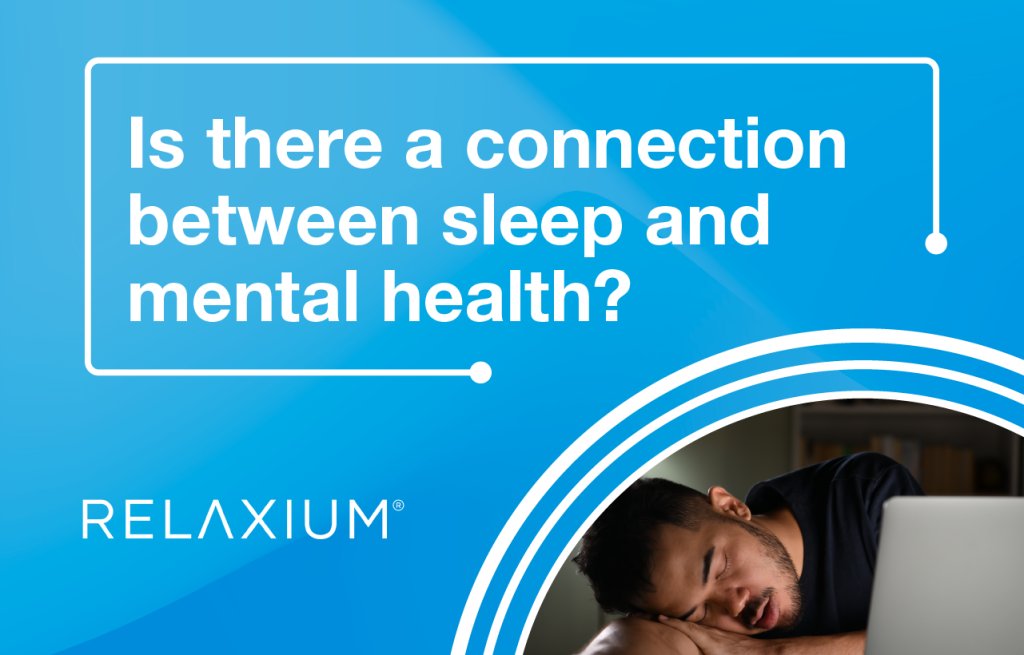Sleep and mental health are closely linked together and have a significant impact on one another. A good night’s sleep can help improve your mental well-being, while poor sleep can lead to or worsen your mental health issues. It’s important to pay attention to your sleep patterns and schedule in order to maintain optimal mental health.
What happens if you get insufficient sleep?
Your mental health will be impacted if you are regularly getting insufficient sleep at night.Lack of sleep can lead to multiple factors, which will all negatively affect your well-being. Some of these factors include:
- Stress: Not getting enough sleep at night can lead to increased amounts of stress
- Mood Changes: Lack of sufficient sleep can cause irritability and quick mood changes, due to the brain not being able to function properly
- Brain Fog: If you are routinely experiencing bad sleep, you could be having brain fog during the day. This may cause you to feel confused, or have trouble concentrating
We know that sleep deprivation can worsen mental health disorders, but research shows it might also cause them. Very Well Mind reported on a study that showed the correlation between insomnia and depression. One analysis of 21 different studies found that people who experience insomnia have two-fold risk of developing depression compared to those who do not have problems sleeping at night. The question, then, is whether helping people improve their sleep might actually lessen their chances of developing depression. Some common sleep disorders people with depression may experience are insomnia, hypersomnia, and sleep apnea.
Anxiety also might worsen with sleep deprivation or insomnia. According to The Sleep Foundation, the bidirectional relationship means that anxiety and sleep deprivation can be self-reinforcing; worrying causes poor sleep, contributing to greater anxiety and further sleep difficulties. Some common sleep disorders people with anxiety may experience are insomnia, hypersomnia, nightmares, and night time panic attacks.
Other mental health disorders that can worsen from lack of sleep are: bipolar disorder, ADHD, schizophrenia, autism spectrum disorder, and seasonal affective disorder (SAD).
What good quality sleep can do for mental health
Lack of sleep causes multiple issues relating to one’s mental health. But if you are getting good sleep at night, there can be many positive benefits. Good sleep can actually improve your mood, increase your energy levels, and often reduce stress and anxiety. It can also help boost cognitive function and concentration, making it much easier to manage mental health issues.
How else are sleep and mental health connected?
Sleep and mental health are also linked in other, more negative ways. Oftentimes, medications prescribed to treat mental health disorders can severely impact one’s quality of sleep. Some may find that their mental health medications can bring about insomnia, causing them to not be able to fall asleep at night. Others find that their medications cause them to be excessively drowsy during the day. It’s important to talk to your doctor about mental health medications, and to experiment with which times work best for you to take your medications, to try and avoid sleep disturbances.
Ways to improve sleep habits
There are several natural ways to improve your sleep habits and quality, which will in turn improve your mental health. Some of the most effective ways to improve your sleep include:
- Exercise regularly: Getting around thirty minutes of exercise a day will greatly improve your sleep quality at night. Regular physical activity can actually alleviate daytime sleepiness, which will increase your tiredness at bedtime
- Manage your stress: While sleep habits are important, try not to stress too much about them. If you are constantly overthinking, you’re going to end up going to bed full of worries. Try doing relaxing activities at night that help calm your mind, so you have an easier time falling asleep
- Keep a relaxing bedroom environment: Make sure that your bedroom is somewhere that is comfortable and relaxing to you. High quality bedding will enhance your sleep, and so will the use of calming lights. It is also important to make sure to avoid the use of electronics too close to bedtime, as the exposure to harsh lights in the evening makes it more difficult to fall asleep
- Keep your sleep schedule as consistent as possible: You should be aiming to go to bed and wake up at the same time each day. This helps to ensure that your body is getting sufficient sleep each night. It will help to set an appropriate bedtime, one that allows you to get the required seven to eight hours of sleep each night
It’s important to know just how crucial sleep is to your mental health. We’ve listed some of the top tips to include in your routine to improve sleep habits. If all else fails, consider trying Relaxium Sleep! Relaxium sleep is your go-to safe, drug-free, and non-habit forming sleep supplement. Its unique triple action approach includes the exclusive Valerest®, which helps to address the root cause of sleeplessness and stress. With Relaxium Sleep, you can rest assured knowing that you’re going to fall asleep quicker, stay asleep longer, and wake up feeling refreshed and alert in the morning.
To restful and healthy days ahead.
The Relaxium Team
*These statements have not been evaluated by the Food & Drug Administration. This product is not intended to diagnose, treat, cure, or prevent any disease.
Sources:
[1] Effects of Lack of Sleep on Mental Health (verywellmind.com)
[2] Anxiety and Sleep (sleepfoundation.org)
[3] Sleep and Mental Health: Why Our Brains Need Sleep (pcpcc.org)

